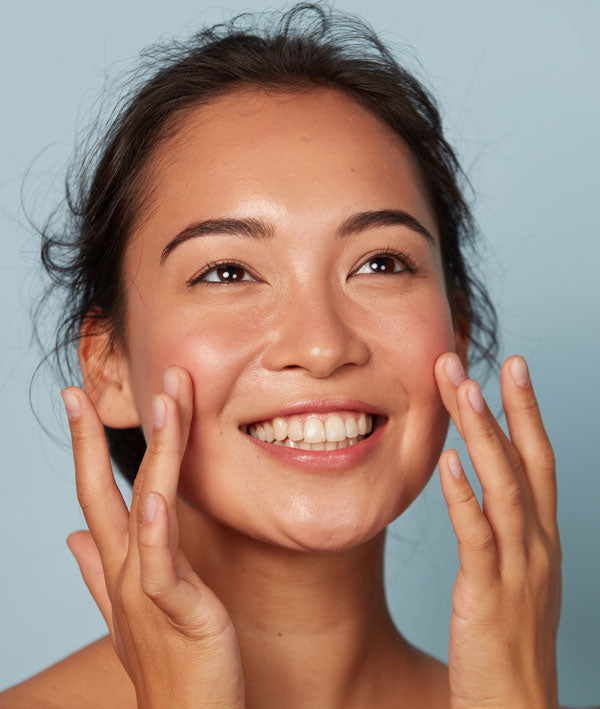Aging gracefully is something many of us strive for, whether it means reducing fine lines, improving skin firmness, or boosting overall energy. One ingredient that frequently comes up in conversations about anti-aging is Coenzyme Q10 (CoQ10). Available in both dietary supplements and topical skincare products, CoQ10 is often marketed as a powerhouse antioxidant that helps turn back the clock. But the question remains: do CoQ10 supplements or skincare products work better for anti-aging—or is the real answer somewhere in between?
Let’s break it down.
What Is Coenzyme Q10 and Why Does It Matter for Anti-Aging?
Coenzyme Q10, also known as ubiquinone or ubiquinol (depending on its form), is a naturally occurring compound found in nearly every cell of the body. It plays a crucial role in cellular energy production by helping generate adenosine triphosphate (ATP), which powers everything your body does—from pumping blood to repairing skin cells.
As we age, the body’s natural levels of CoQ10 decline. Lower CoQ10 levels can mean:
-
Less efficient cellular energy production
-
Increased oxidative stress (damage caused by free radicals)
-
Reduced ability for cells—including skin cells—to repair themselves
In skincare terms, this can translate to fine lines, dullness, sagging, and a slower repair cycle. That’s why CoQ10 has become such a popular ingredient in both wellness and beauty products.
How CoQ10 Supplements Work from the Inside Out
Taking CoQ10 as a supplement provides the body with an internal boost of this vital nutrient. Here’s how it can impact the aging process from within:
-
Supports Cellular Energy Production
CoQ10 helps mitochondria—often called the “powerhouses of the cell”—function more efficiently. This means cells throughout the body, including skin cells, may perform better and regenerate more effectively. -
Acts as a Systemic Antioxidant
CoQ10 neutralizes free radicals that cause oxidative stress and accelerate aging. This doesn’t just benefit your skin—it also supports heart health, brain function, and overall vitality. -
Improves Circulation and Skin Oxygenation
Some studies suggest CoQ10 supplementation can improve microcirculation, which helps deliver more oxygen and nutrients to the skin, potentially improving its radiance. -
Boosts Energy and Reduces Fatigue
Many people who take CoQ10 report feeling more energetic. While this doesn’t directly erase wrinkles, more energy often translates into a healthier lifestyle, which supports skin health indirectly.
Limitations of Supplements:
The main drawback of supplements is that nutrients are distributed throughout the entire body, not just to the skin. This means that while supplements may improve skin health as part of broader systemic benefits, results can be slower and less directly visible than with topical applications.
Benefits of CoQ10 in Skincare Products
Topical CoQ10 is specifically designed to deliver benefits to the skin barrier and underlying layers. When used in creams, serums, or oils, CoQ10 can directly target visible signs of aging.
Key Benefits of CoQ10 in Skincare:
-
Reduces the appearance of wrinkles and fine lines
CoQ10 helps energize skin cells so they can repair and regenerate more efficiently. This can visibly improve texture and reduce the depth of wrinkles. -
Protects against UV damage
As an antioxidant, CoQ10 helps defend the skin against environmental stressors like sun exposure and pollution—two major accelerators of aging. -
Improves firmness and elasticity
Research suggests that CoQ10 can stimulate collagen and elastin production, which helps skin look firmer and more youthful. -
Enhances radiance
By improving cellular energy, CoQ10 can help skin appear brighter and more even-toned.
Limitations of Skincare Products:
Topical CoQ10 must penetrate the outermost layer of skin (the stratum corneum) to be effective. Not all formulations are created equal—quality matters. Poorly formulated products may not deliver CoQ10 deeply enough to have a significant effect.
CoQ10 Supplements vs. Skincare: Key Differences Explained
While both supplements and skincare products use the same core ingredient, the way they work differs significantly.
|
Feature |
CoQ10 Supplements |
CoQ10 Skincare |
|
Delivery Method |
Oral capsules/softgels absorbed into bloodstream |
Topical creams, serums, oils applied directly to skin |
|
Target |
Whole-body benefits (heart, brain, skin, energy) |
Direct skin benefits (anti-aging, UV protection, hydration) |
|
Speed of Results |
Slower, systemic improvements over weeks/months |
Faster, visible skin benefits within weeks |
|
Main Benefit |
Internal support, energy, antioxidant protection |
External skin rejuvenation, wrinkle reduction, brightness |
|
Limitation |
Results not skin-specific |
Dependent on product formulation and absorption |
Should You Take CoQ10 or Apply It Topically?
The answer depends on your goals.
-
If you’re focused primarily on skin appearance—topical products are the most direct choice. They allow CoQ10 to act exactly where you want results: on the skin’s surface and within skin cells. A high-quality CoQ10 serum can make a visible difference within weeks of consistent use.
-
If you’re seeking whole-body anti-aging benefits—like more energy, better heart health, or support for the brain—supplements may be the better option. While they may not give you instant visible results in your skin, they can enhance cellular health across the board.
-
If you’re looking for both inside-out and outside-in benefits—combining supplements with skincare may be the most effective strategy.
Can You Use CoQ10 Supplements and Skincare Together?
Absolutely—and in fact, this may be the most powerful way to maximize results. Think of it as a two-pronged approach to aging:
-
Supplements provide the foundation. They increase systemic CoQ10 levels, which helps every cell in the body—including skin cells—function more efficiently. This creates the internal conditions for healthier, more youthful-looking skin.
-
Topical skincare provides the precision. By applying CoQ10 directly to your face or other areas of concern, you target visible signs of aging right where they appear.
Tips for Combining Both Approaches
-
Choose high-quality supplements. Look for ubiquinol (the active form of CoQ10), as it’s more bioavailable than ubiquinone. Always consult your doctor before starting supplements, especially if you take medications like statins or blood thinners.
-
Prioritize well-formulated skincare. Opt for serums and creams that list CoQ10 high in the ingredient deck and use delivery systems designed for deep penetration. Pairing CoQ10 with other antioxidants like vitamin C may enhance results.
-
Be consistent. Neither supplements nor skincare are overnight fixes. Visible and lasting results typically come with daily use over weeks and months.
-
Support with lifestyle. Healthy sleep, sun protection, and a balanced diet will amplify the benefits of CoQ10, whether you’re ingesting it or applying it topically.
When it comes to anti-aging, CoQ10 is valuable both as a supplement and as a topical ingredient.
-
Topical CoQ10 delivers faster, more noticeable improvements in skin appearance—reducing wrinkles, improving elasticity, and brightening the complexion.
-
Supplements support long-term, whole-body wellness that may indirectly benefit the skin while directly improving energy and cellular health.
The real power comes from using both approaches together. By nourishing your cells from the inside out and giving your skin a topical boost from the outside in, you create a synergistic anti-aging routine that works at multiple levels.






